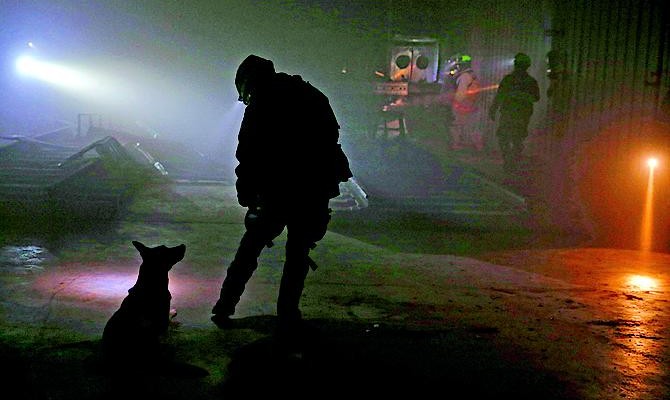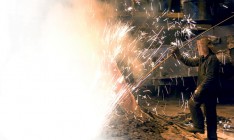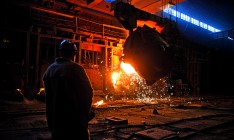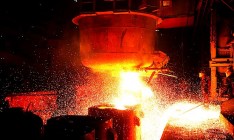Economy
trendsUkrainian industrial enterprises lowered their indicators due to the conflict in the east of Ukraine and the sluggish demand of Russia

Over the first half year Ukrainian industrial enterprises reduced output by 5% compared to January-June of last year. Companies operating in the conflict zone and those that exported their products mainly to Russia were forced to reduce their production.
Danger zone
Production volumes experienced the greatest decline in oblasts in the conflict zone. In the Donetsk oblast they fell by 12.3% and in the Luhansk oblast by 5%. So, due to the military actions the holding company DTEK controlled by Rinat Akhmetov was forced to suspend the operation of five mines and central ore enrichments plants in the Luhansk oblast in mid-June.
As a result, the output of coal fell by 5% over six months and 10.8% in June. Over the following months output will continue to fall. Since July 11 DTEK again suspended the operation of four mines in the Luhansk oblast after a bus in which miners were being transported got caught in a line of fire.
The machine-building industry also suffered an 18% decline in production. ZAZ (Zaporizhzhia Auto Plant – Capital) outfits 900 Ukrainian enterprises. 30-40% of the fittings were delivered from the east. Now there are major interruptions,” said owner of the UkrAVTO Corporation Tariel Vasadze in a July interview with Liga.
He said the reserve of fittings created by the company will soon run out and the company is seeking to replenish them with products from China and other potential suppliers. “If the situation does not change, production could be suspended in September,” Vasadze noted.
Victims of Moscow
According to the latest data of the State Statistics Service, the export of Ukrainian products to Russia fell 22.6% over the period January-April. The May-June results showed that export fell even more when Moscow increased the number of limitations on the import of domestic products with the signing of the economic part of the Association Agreement between Ukraine and the EU. As Capital wrote earlier, the animal husbandry sector was the main victim of the toughening of Russia’s trade policy.
The export of companies of the animal husbandry sector is not highly diversified and is mostly dependent on Russia. Indeed, last year 93% of pork, 87% of cheese and 74% of beef produced in Ukraine was exported to Russia. Trade barriers put up by Russia on the export of these products – from the ban on the supply of dairy products of certain producers to the reduction of the number of throughput points for animal husbandry products to two – forced producers to considerably curtail their output.
According to January-June results, output of fresh and refrigerated beef fell 4.4% and frozen meat – by 18.5%. The production of fatty cheese also fell by 18.5%. The production of railway transport in Ukraine, which was mainly exported to the Russian market up until now, also suffered from the trade restrictions imposed by Russia.
In September-October Moscow banned the import of railcars of four Ukrainian plants, which accounts for 80% of domestic production – the Kryukiv Railcar Plant (KRP), AzovMash, DniproVahonMash and the Stakhaniv Railcar Construction Plant. Later the ban was lifted, but export to Russia was not fully revived – in January-April it fell by 57.3%. As a result, over six months railway construction fell by 77.1%. Specifically, the KRP in January-June 2014 reduced the production of freight cars by 76.1%.
Metal without Moscow
Moscow created problems for Ukrainian steel mills as well. Over the first half year Ukrainian metallurgy output fell by 8.7%, including steel without semi-finished products – by 12.2% and finished rolled black metal – 11.7%. This was a logical consequence of the reduction of export of black metal to Russia by 38.7% and its products by 29.1%. The reason was the routine trade restrictions imposed by Moscow.
In the spring of 2013, RosTransNadzor banned the use of nearly 1,500 railcars equipped with casting produced by the Kremenchuk Steel-casting Plant (KSP) that did not planned repairs in 2012-2013. In the spring of 2013 the Russian Railway System banned the use of railcars with chassis of the KSP.
Due to the problems with the sale of products, the main consumer being Russia, at the end of February the KSP took a forced vacation. In January-May, when the plant sought new markets, its output fell by 35%. Meanwhile, the Metinvest holding company owned by Rinat Akhmetov reduced the smelting of steel and the output of finished metal products by 8% over six months due to the low demand of the Russian market.






 of the agreement of syndication with Financial Times Limited are strictly prohibited. Use of materials which refers to France-Presse, Reuters, Interfax-Ukraine, Ukrainian News, UNIAN agencies is strictly prohibited. Materials marked
of the agreement of syndication with Financial Times Limited are strictly prohibited. Use of materials which refers to France-Presse, Reuters, Interfax-Ukraine, Ukrainian News, UNIAN agencies is strictly prohibited. Materials marked  are published as advertisements.
are published as advertisements.